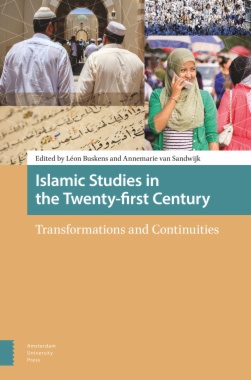In recent decades, traditional methods of philology and intellectual history, applied to the study of Islam and Muslim societies, have met with considerable criticism from rising generations of scholars who have turned to the social sciences, most notably anthropology and social history, for guidance. This change has been accompanied by the rise of new fields, studying, for example, Islam in Europe and Africa, and new topics, such as the role of gender. This collection surveys these transformations and others, taking stock of the field and showing new paths forward.
- Cover
- Table of Contents
- Preface
- Introduction
- Dichotomies, Transformations, and Continuities in the Study of Islam
- Islamic Texts
- The Anthropologist as Reader
- Textual Aspects of Religious Authority in Premodern Islam
- What to Do with Ritual Texts
- Islamic Fiqh Texts and the Study of Islamic Ritual
- Textual Study of Gender
- Scholarship on Gender Politics in the Muslim World
- Some Critical Reflections
- Power, Orthodoxy, and Salvation in Classical Islamic Theology
- Dialectical Theology in the Search for Modern Islam
- “Classical” Islamic Legal Theory as Ideology
- Nasr Abu Zayd’s Study of al-Shafiʿi’s al-Risala
- Islamic Law in the Modern World
- States, Laws, and Constitutions
- Vernacular Cosmopolitanism as an Ethical Disposition
- Sufi Networks, Hospitality, and Translocal Inclusivity
- Middle Eastern Studies and Islam
- Oscillations and Tensions in an Old Relationship
- Notes on Contributors
- Overview of NISIS Autumn Schools, 2010-2014
- Index

